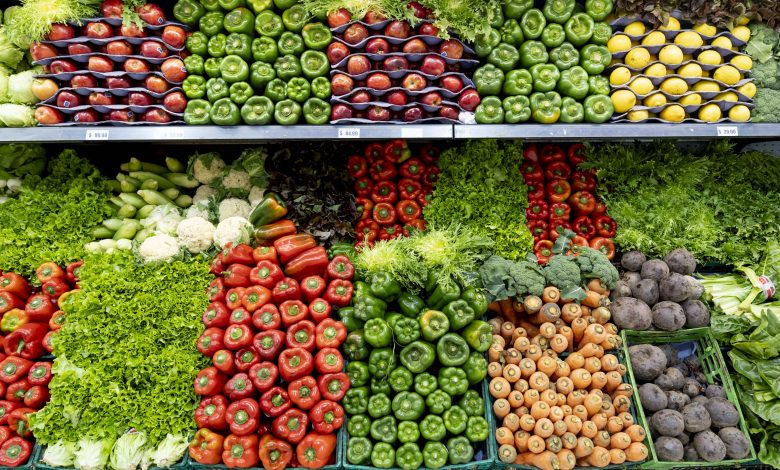Why we may have to change the food we eat to help the environment

[ad_1]
Factory farming, better refrigeration and globalization have all transformed billions of people’s diets.
From beef, chicken and fresh seafood to exotic fruits and vegetables flown in from around the world, we are now spoilt for choice when it comes deciding what to put on our plates. Many diets are now based around meat, while dairy products such as butter, milk and cheese are no longer viewed as luxuries.
It may be nice to have the option of dining on steak each night, but there are environmental costs. The Food and Agriculture Organization of the United Nations (FAO) has previously said that emissions from global livestock amount to an estimated 7.1 gigatons of carbon dioxide equivalent each year. This, according to the FAO, represents 14.5% of “anthropogenic” — something which derives from human activity – greenhouse gas emissions.
Waste is also an issue. In some countries, easy access to food means some consumers can take it for granted, throwing out leftovers or unused ingredients without a second thought. Around 1.3 billion tons of food produced for human consumption is either lost or wasted every year, the FAO has said.
Changing diets
As concerns about climate change and animal welfare mount, meat and dairy-free diets are becoming increasingly popular. An IPSOS Mori survey, commissioned by The Vegan Society, found that there were 600,000 vegans in Britain in 2019, up from 276,000 in 2016. According to YouGov, 14% of people living in the U.K. describe themselves as “flexitarian.”
Supermarkets and restaurants are increasing their offering of meat-free products, while fast food giants such as Burger King have added plant-based items to meat-heavy menus.
In some quarters, insects — eaten by humans in many parts of the world — have also been advocated as a sustainable source of protein that should be introduced to the Western palate. For its part, the FAO says insects that are edible “contain high quality protein, vitamins and amino acids for humans.”
As well as their nutritional value, eating insects has less of an impact on our planet than more conventional sources of protein. The FAO states that they possess a “high food conversion rate,” citing the example of crickets, which require “six times less feed than cattle.”
Changing attitudes
Even if people decide to continue eating meat and dairy, a focus on seasonal food and production methods that are less intensive could also have a role to play.
“We should eat what the farmers who live in our part of the world, in our region… produce, using sustainable production methods,” Patrick Holden, founding director of the Sustainable Food Trust, told CNBC’s “Sustainable Energy.”
“Farmers should be as self-sufficient as possible,” Holden added. “That’s the best way to feed ourselves: grow our own food or at least buy from producers who live locally to us. That’s food security as well — we need more food security.”
Olivier De Schutter is co-chair of the International Panel of Experts on Sustainable Food Systems (IPES-Food). Based in Brussels, IPES-Food aims to promote the “transition to sustainable food systems around the world.”
Speaking to CNBC, De Schutter sought to highlight a number of issues. “It’s important to realize that the reason why our food systems are not sustainable is because we’ve encouraged the globalization of food supply schemes,” he said.
“We’ve developed trade, we’ve developed long supply chains, and the longer food travels, the further it travels, the more processed it is, the more packaged it shall be and the less nutritious it shall be,” he added. “It also is a way to encourage a type of farming that is not sustainable.”
De Schutter went on to describe re-localizing food systems as a way to access “much more nutritious diets.”
“It’s a way to encourage farmers to move to much more diversified farming systems that can support the health of the soil and thus allow the soil to function as a sink for carbon,” he added.
“It is a way … to make food production more sustainable and to make food consumption more healthy for the people who have access to these fresh, locally-produced foods.”
It’s all well and good to advocate for a diet based on locally grown, sustainable ingredients. More often than not, however, these types of products are expensive and inaccessible to a great deal of shoppers.
By contrast, out of season or non-native items flown in from across the world can often offer a cheaper option and year round supply of fruits and vegetables.
“The prices do not reflect, today, the real impacts of food production on the ecosystems and on the planet,” De Schutter said.
He added that if we were to pay the “real price” for industrially processed foods it would be much higher “because we would need to compensate for all the social, health and environmental impacts of industrially produced foods.”
Source link






